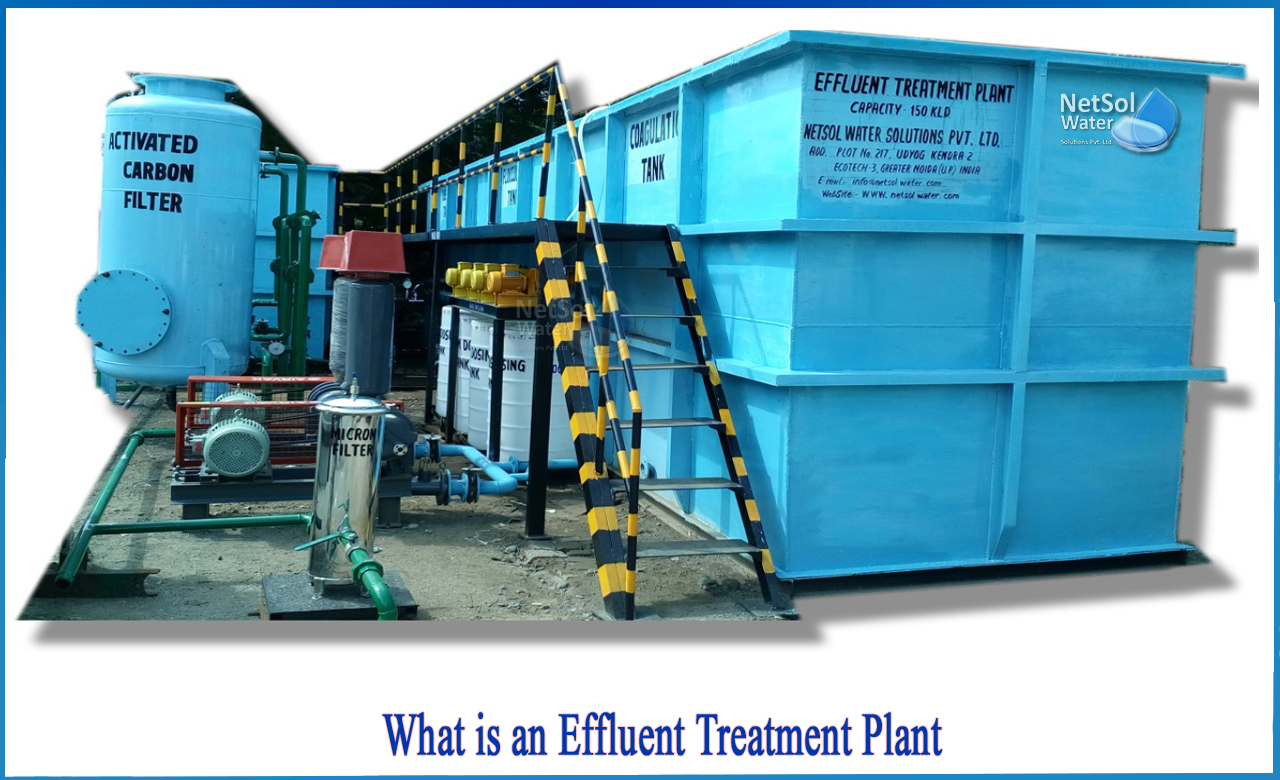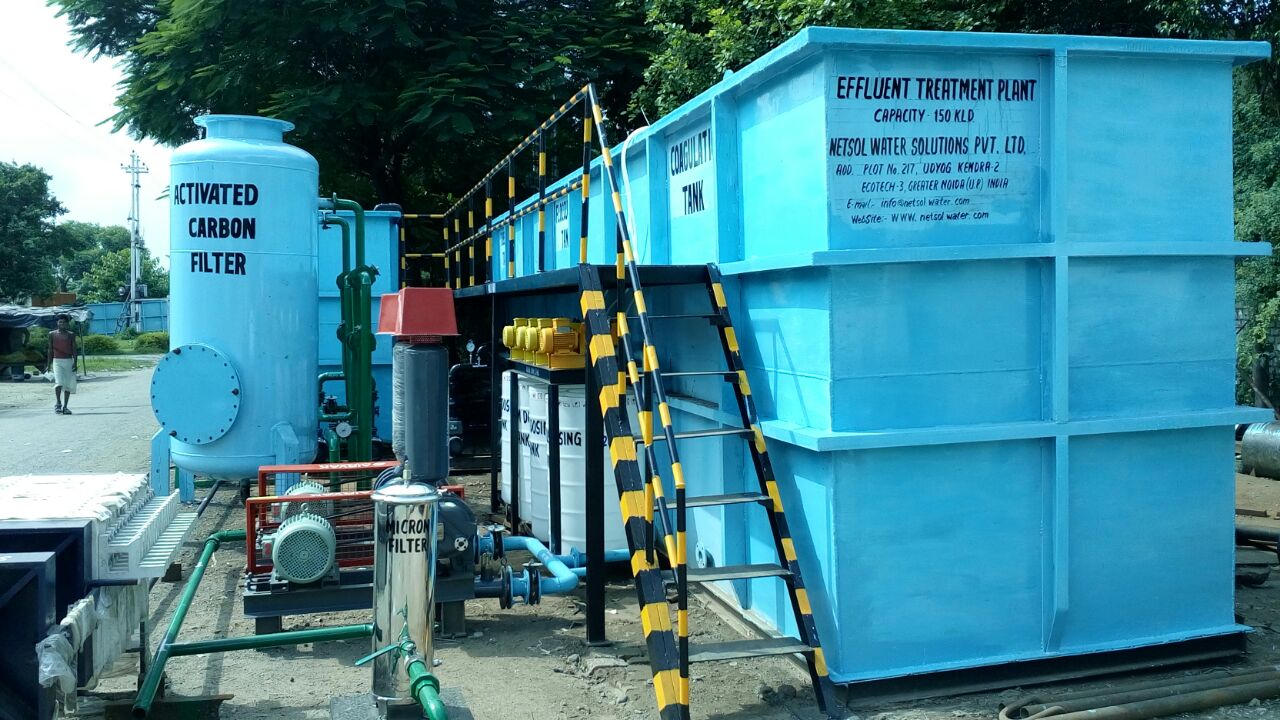Water is considered to be polluted when it contains enough impurities to make it unfit for a certain function, such as drinking, agricultural, industrial use, or commercial use. Although natural forces have an impact on water quality, the word pollution frequently refers to human activities as the source of contamination. Water pollution is therefore mostly produced by the discharge of effluents into surface water or groundwater by various sectors; consequently, effluent treatment plant manufacturers is an essential component of water pollution mitigation.
Netsol’s Effluent Treatment Plant is the ideal option in India!
The Netsol Water Solution wastewater treatment plant is a system that can treat effluent and make it environmentally safe. Effluent is defined as wastewater that has been released by industries into the environment. This wastewater may include hazardous compounds, which infiltrate our ecosystem via rivers, oceans, and so forth. People who consume contaminated water risk becoming very sick. Through effluent treatment plant, effluent is treated and all the harmful elements and toxins are eliminated so that discharge won’t be harmful to the environment.
Furthermore, organic debris is present in wastewater, which is broken down by organisms in effluent treatment facilities. Once all of the contaminants have been consumed by these microscopic creatures, the cleaned effluent may be released back into nature.
During the procedure, ETP takes the following steps:
1. Pre-treatment: This is a physical procedure that involves screening or a grit chamber to eliminate floatable solids in raw effluent before they harm the plant’s pumps and other equipment. It also has an oil and grease trap for eliminating floatable oil and grease from the industrial effluent.
2. Primary Treatment: Pre-treated wastewater is now introduced into the primary tank, where a chemical procedure is carried out (which involves coagulation, flocculation, and neutralization). Heavy sediments sink to the bottom, while oil, grease, and other lighter solids float to the surface and are skimmed. The settled particles are referred to as primary sludge, and the residual liquid wastewater is treated at the next step.

3. Secondary Treatment: This treatment comprises a biological process that eliminates approximately 90% of the BOD and COD. Depending on the quality of the effluent, the biological process might be aerobic or anaerobic. However, the majority of ETPs employ the aerated sludge process to effectively treat wastewater. It eliminates biological stuff that has been dissolved or suspended.
4. Tertiary Treatment: This treatment is critical in ETPs. Because chlorine, ozone, and UV radiation are used to disinfect treated wastewater here. It also eliminates leftover suspended particles left behind from prior treatment stages. Finally, the treated effluent from the vehicle industry is of acceptable quality and ready for release.
What distinguishes Netsol’s Effluent Treatment Plant from others?
Netsol Water Solution, India’s top manufacturer, would install effluent treatment systems in industrial facilities to deliver the finest treatment plant with distinct results:
Efficiency and dependability–
Natural wastewater treatment technologies are very effective in removing hazardous substances from water. The weather, on the other hand, has an impact on the functioning of the treatment facilities. The natural effluent treatment system can absorb a wide spectrum of sediments, contaminants, and organic feed even under extreme operating conditions.
Simplicity-
Establishing contemporary wastewater treatment technology demands massive sums of money and land. Furthermore, the property must be located on the outskirts of the city. Effluent treatment facilities, on the other hand, maybe built near to civilization, with very simple plant designs. The plants require less construction, which reduces maintenance costs. However, you will need to invest in property and the location of the treatment plants.
Budget-friendly –
Installing a high-quality effluent treatment facility in India is a low-cost means of treating effluent that keeps harmful pesticides and toxins at bay. If properly maintained, a high-quality plant acquired from a reputed manufacturer, such as Netsol Water Solution in India has been shown to give long-term service. Typically, effluent treatment plants operate effectively for many years without incident, and the government provides a number of subsidies to help businesses establish this equipment.
Solid waste is broken down swiftly –
The most modern effluent treatment plant manufactured by India’s well-known manufacturers uses anaerobic technology to break down solid waste faster than earlier treatment plants. Because there are fewer solid wastes to pollute groundwater in this system, it does not need to be de-slugged as frequently.
Protects ecosystem–
Effluent treatment plants are particularly successful in preventing illnesses caused mostly by microorganisms. The facility filters out pollutants and destroys hazardous organisms before releasing effluent into the ground or bodies of water. The filtration process of the treatment plant prevents disease-causing organisms from entering water sources and reaching plants and farm animals.
Emits less odor –
Leading wastewater treatment plant manufacturers in India claim that their modern effluent treatment plant emits less odor than older effluent treatment plants. Many people avoided establishing this plant because it was difficult to tolerate the nasty stench of effluent, but with the launch of the newest plant, manufacturers guarantee that no undesirable odors would be produced by the effluent treatment.
Netsol Water is an excellent investment for all manufacturing industries, with the lowest operating costs and the longest emptying intervals in the market. Therefore, it is rightly said that, before taking a decision, always think first!
Contact Netsol Water Solutions at +91 9650608473 or enquiry@netsolwater.com for water treatment professionals.
